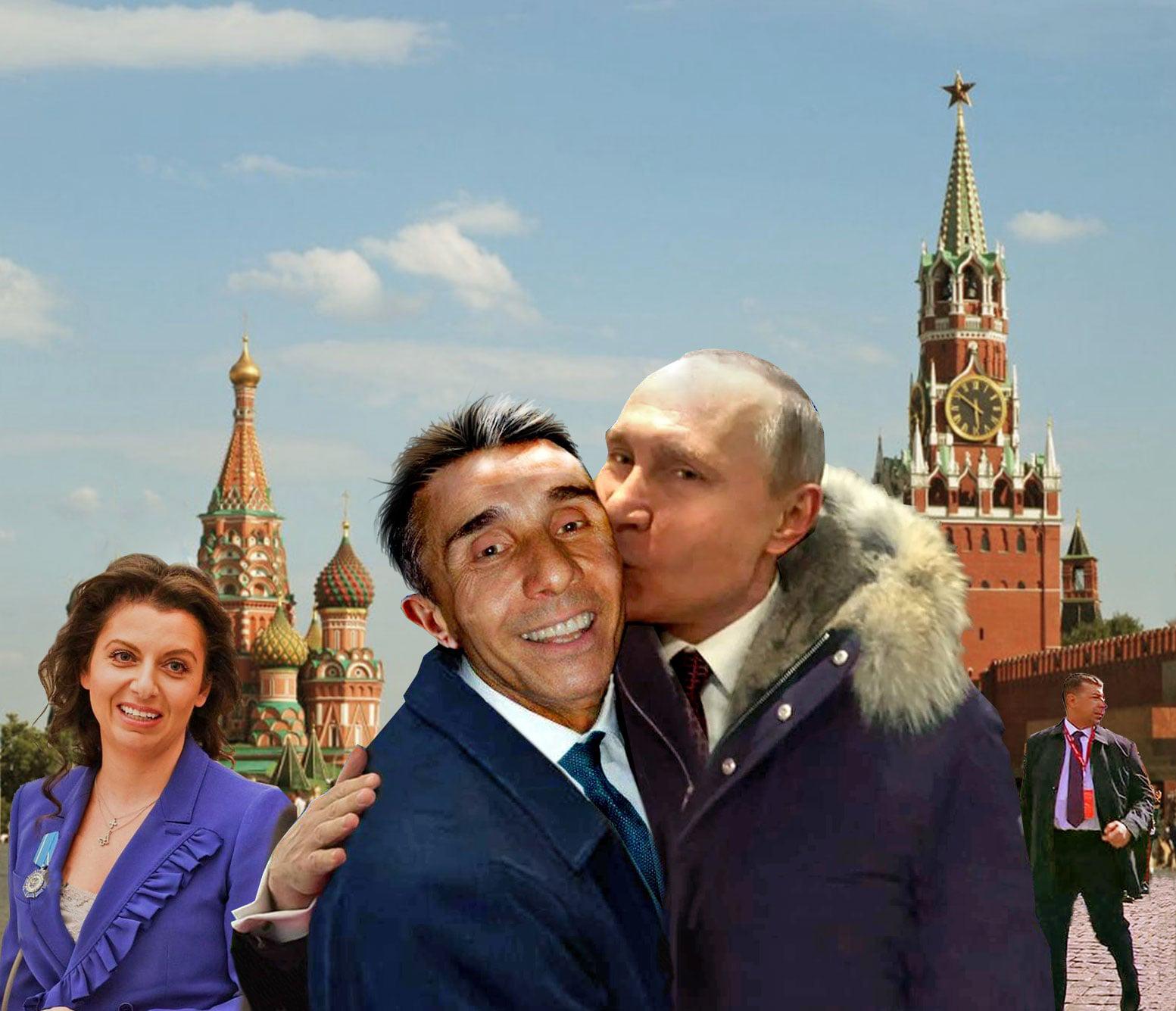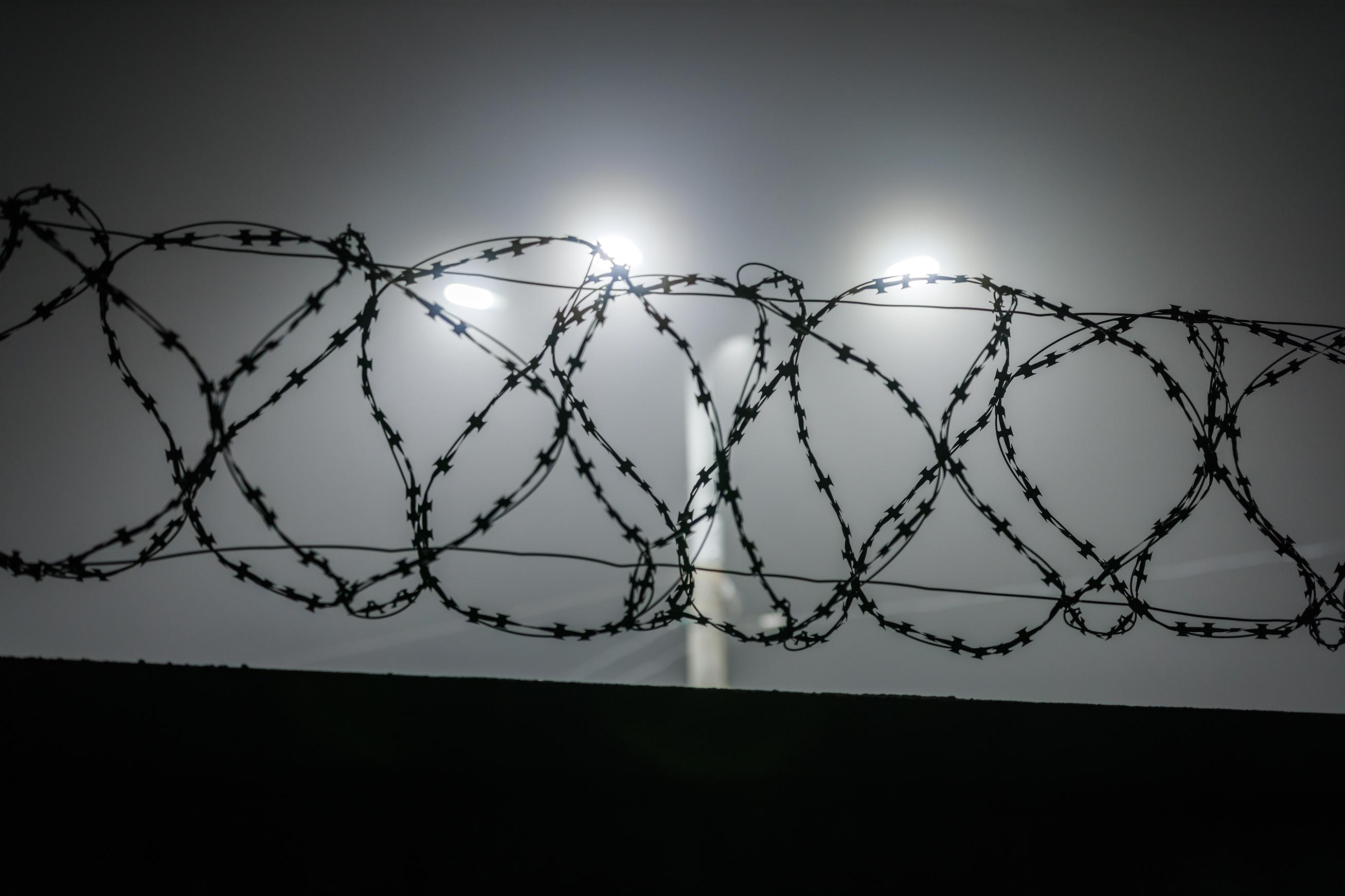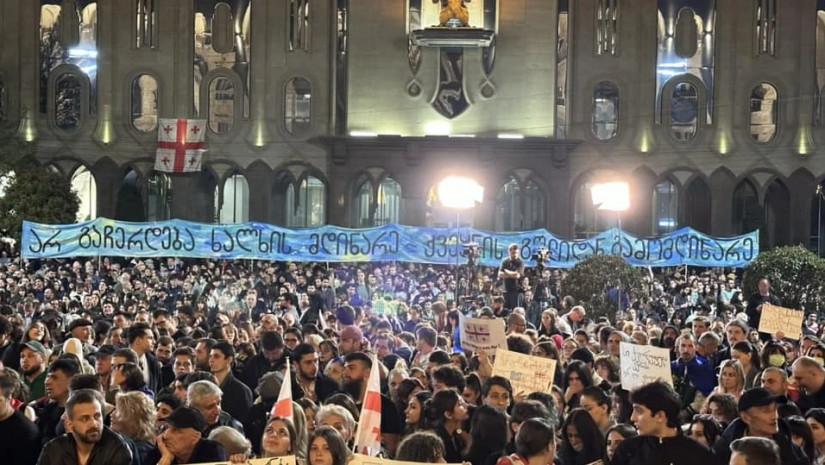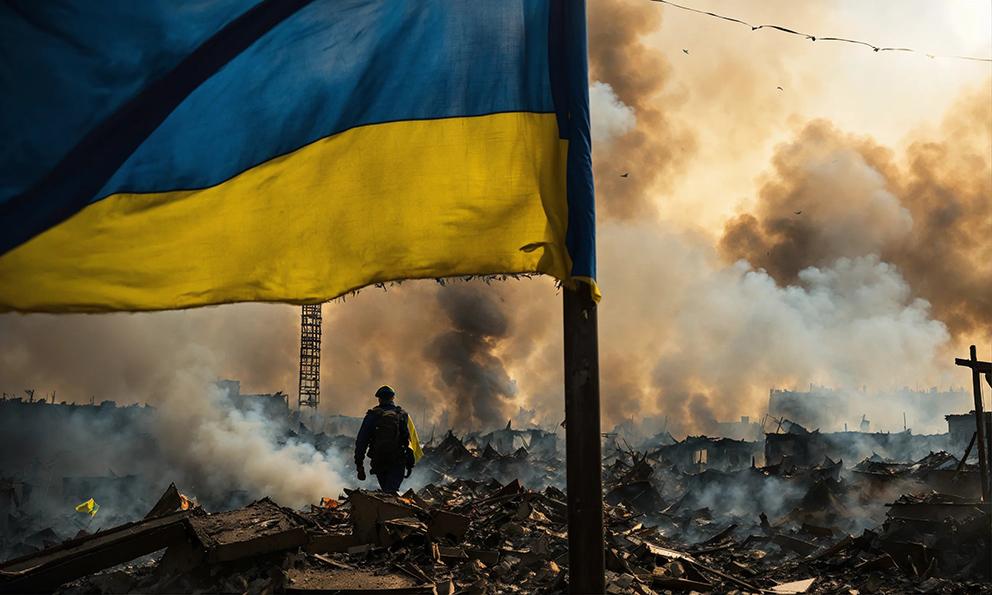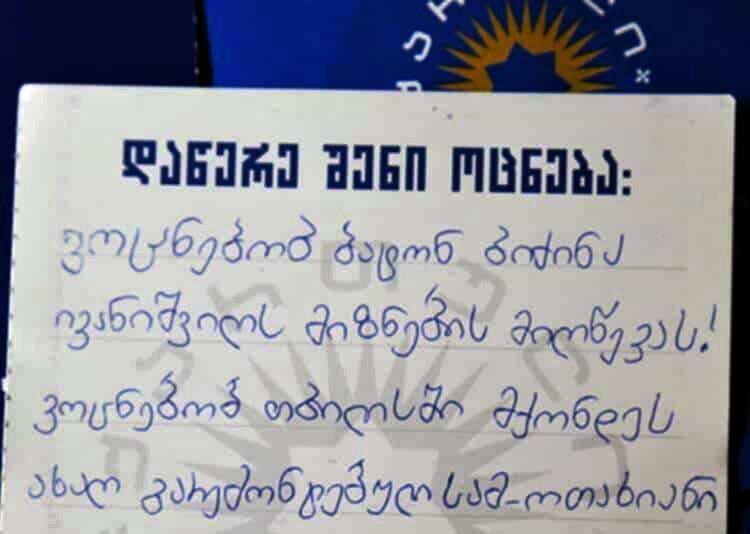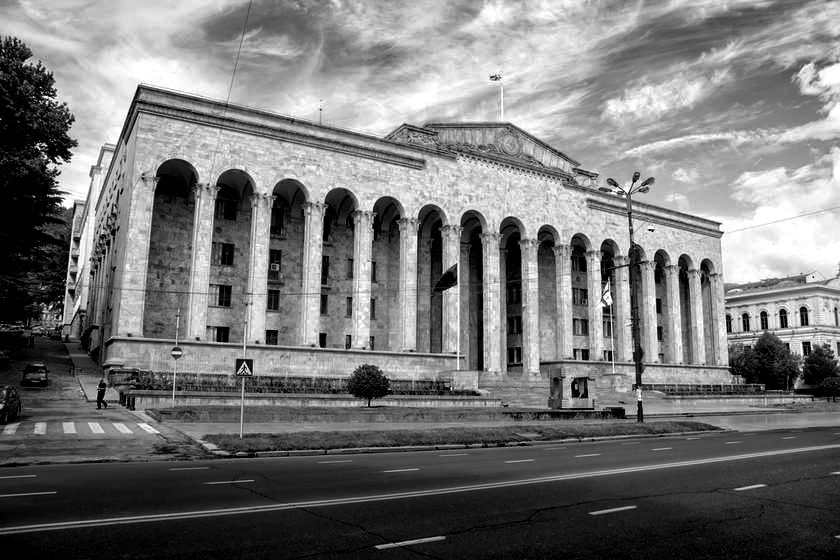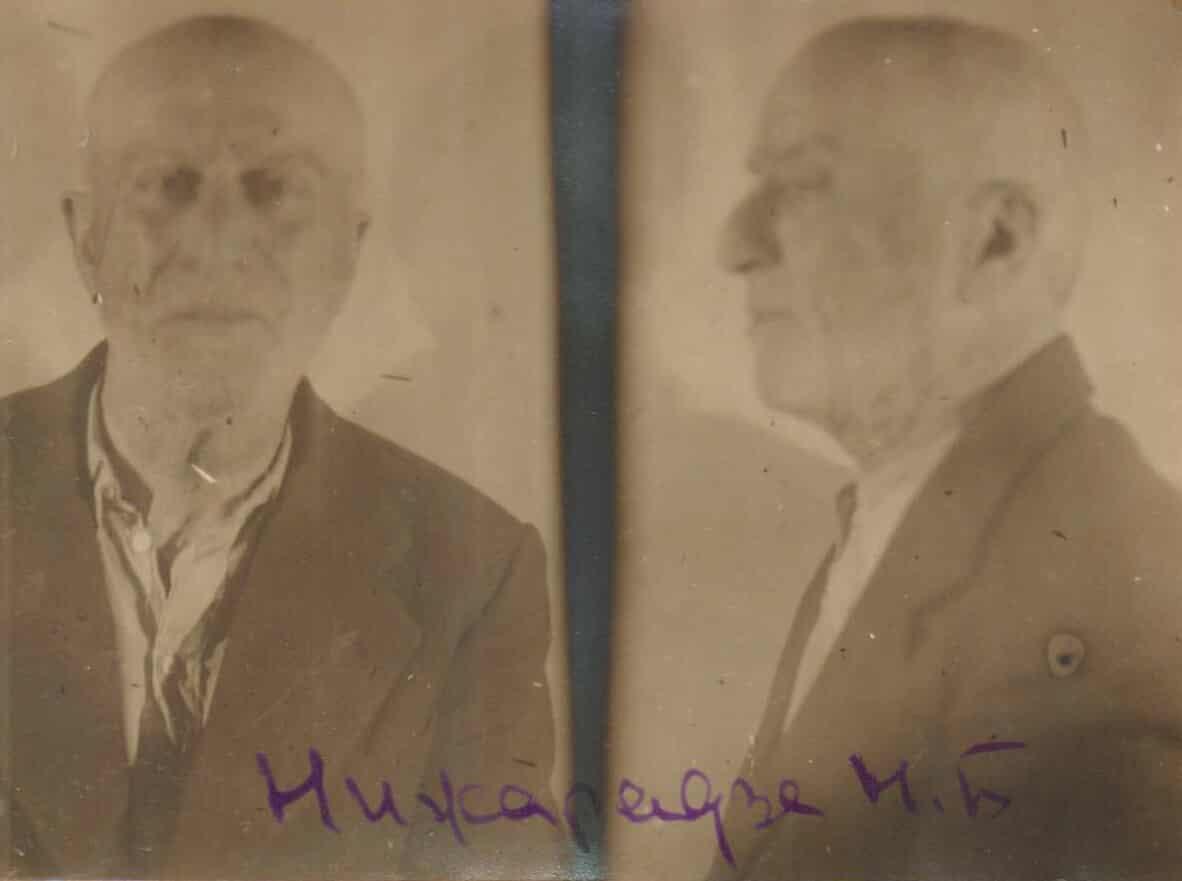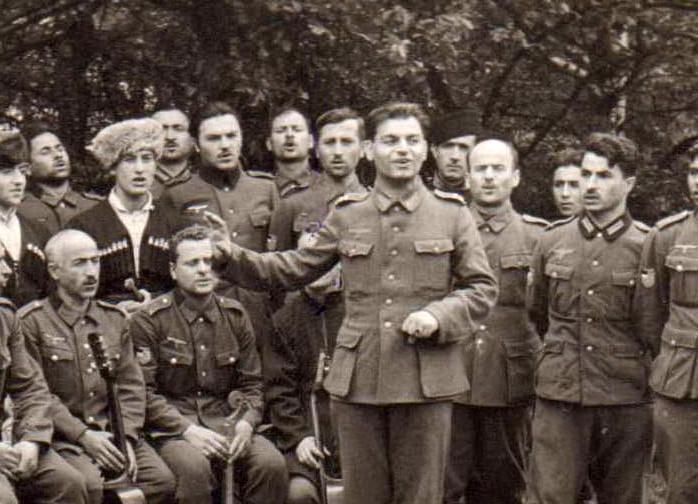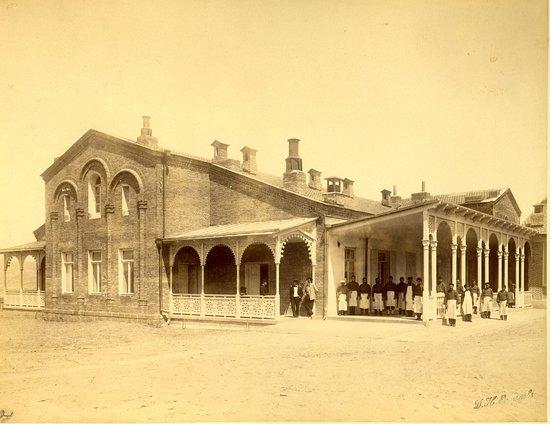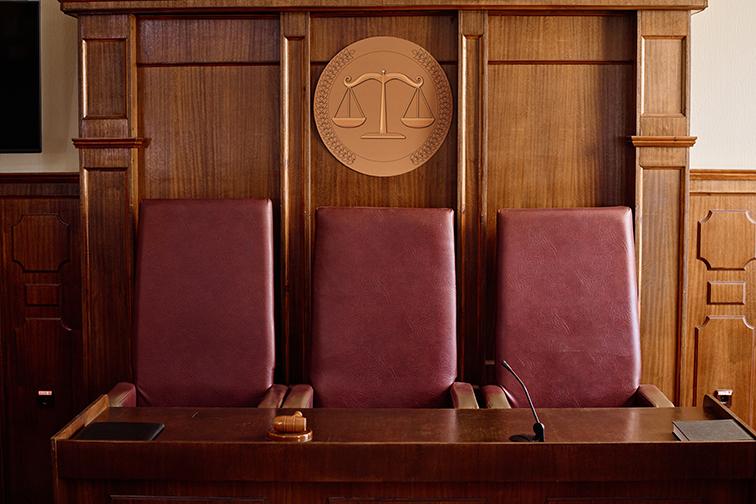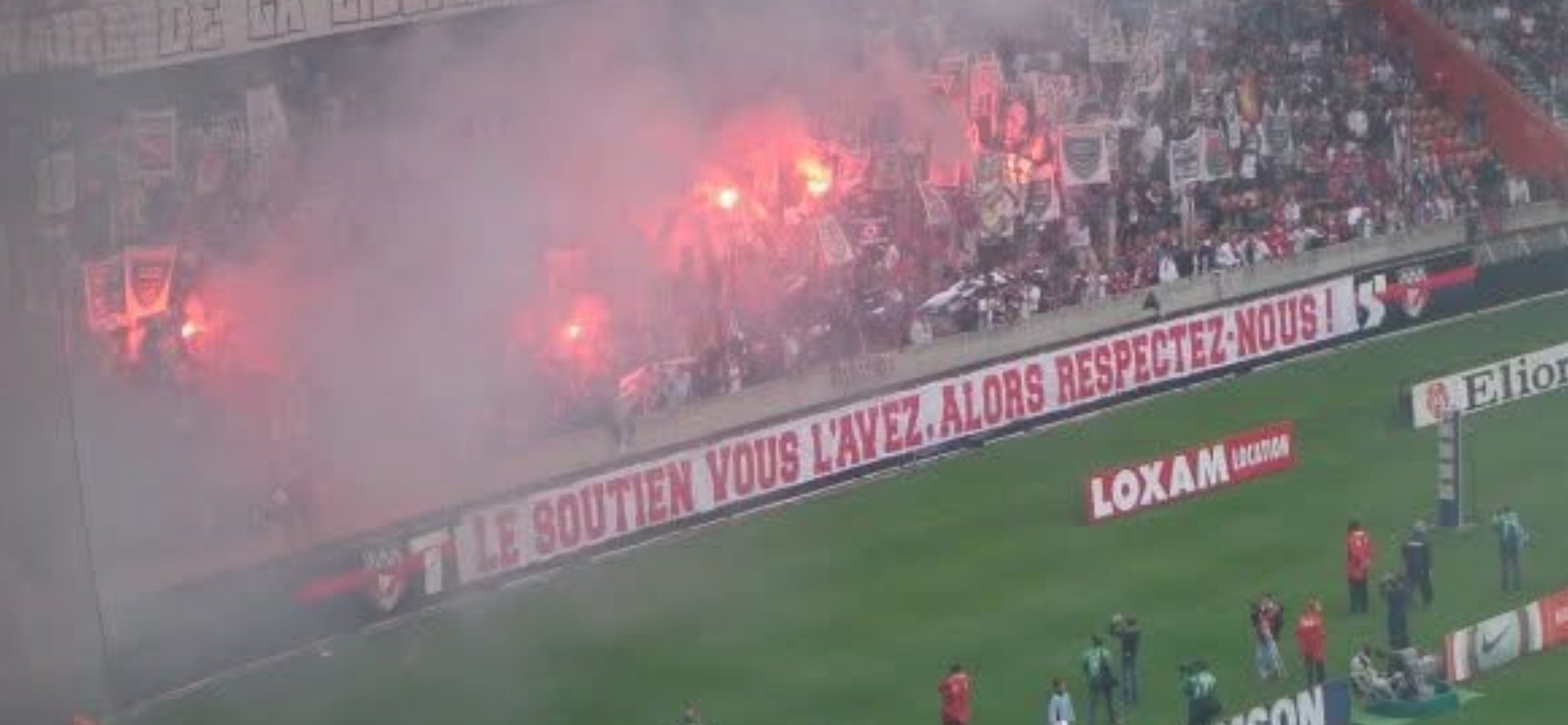Author : Tinatin Eradze
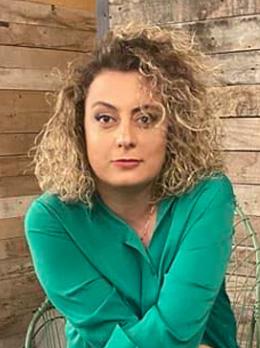
‘I have never made a single mistake neither under Shevardnadze, nor under Saakashvili, nor under Ivanishvili!’ declared a former ‘Dreamer’ who had been in every government, speaking on the air of one of the critical channels, diligently trying to convince viewers of his political integrity.
There are two things I do not believe in the Georgian political world: the conscience of those who remain in the Georgian Dream after the terrible story of Rafaliants1 and in the morality of politicians who were right in all political times and under all circumstances—when they supported Ivanishvili, justifying him then and justifying him still now. However, they never take responsibility for the past. They never acknowledge, apologise for, or repent for anything.
‘When we left, Ivanishvili started to mess things up. Before that, everything was fine.’
‘The Dream started to change course in 2019.’
‘I was a representative of the Georgian Dream coalition, not a member of the party.’
‘We reformed the Supreme Court!’
‘When I was a member of the government, I criticised it from within.’
You’ll primarily hear these and similar quotes on ‘critical’ channels. Government-affiliated media, of course, no longer gives airtime to those who have been ousted from its ranks; they only extract and present to viewers snippets that align with their propaganda. You often hear such phrases from people who were strengthening the Dream government precisely when the foundations of authoritarianism were being laid and the destruction of political opponents was beginning. It should have been clear from the outset to any discerning eye that the Dream’s rule would not bring anything good to the country but would instead lead it toward an abyss.
Former faces of the Dream government don’t refuse invitations to ‘critical’ media shows, yet no one on these programs is particularly keen on evaluating or reevaluating their own political past. Questions about their past are irritating to them; they only want to share their own ‘expert’ analysis. If they are asked critical questions about their past, they get irritated and accuse the journalist of bias (which, by the way, is also a key characteristic of current Dreamers: getting angry at critical questions and attacking journalists). Some might say there’s no such thing as a former Georgian Dream supporter, and they might be right. You’d have a hard time naming a former who has analysed their own past, taken responsibility, and apologized—sorry for strengthening the Russian regime, for helping a Russian oligarch come to power and then ensuring his stability for years to come, for saying that Putin is not an enemy, for putting criminals and spies of every kind on a list of ‘political prisoners’ and releasing them from prison, for voting for thousands of harmful laws, either because of party expediency or in exchange for promotion or other material benefits... No one has yet apologised for claiming that Georgia started the August 2008 war.
They’ve left all their sins in the past and have appeared in this new era completely spotless and pure. Now Kobakhidze has become the destroyer of the country, otherwise, while they themselves were there, Ivanishvili was a pro-Western philanthropist devoted to his homeland. And no, you won’t hear much sharp criticism of Ivanishvili even now (it seems no one wants to burn their bridges completely).
Today, the only platform they have is the ‘critical’ media. They sit there with grim faces, assessing current events, condemning the opposition, distancing themselves from the United National Movement (UNM) and portraying themselves as impartial observers. They are neither Dreamers nor ‘nationalists’ and seem to dislike everyone in the opposition. They also never fail to emphasise that both the UNM and Georgian Dream are equally evil. One of them even said, ‘We’ve been like this for 30 years; nothing special is happening now.’ In other words, let’s ignore everything that has been happening in Georgia in recent years—the change in the country’s Western course, the disappearance of NATO membership from the agenda, and the successive sanctioning of high-ranking officials and judges by Europe and America—none of this has been anything special…
I’ve had my own attempts, and it’s better to confess your sins. I’ve tried to interview some of them, not as experts but as people who know the inner workings of the Dream, but every attempt to get them to reveal something from the old days that would shake Ivanishvili’s regime has ended in failure.
In addition to political talk shows, the ‘Purified’ are also periodically featured in entertainment shows, where their positive image PR reaches its peak... Once, one of the former top Dreamers was dancing the Acharuli dance on a ‘critical’ media channel. It wasn’t like he was disguised at the beginning and his identity was revealed at the end; no—it really was him and he really was dancing Acharuli while everyone around him was cheering him on. It was so much fun that I had completely forgot that in 2012 he compiled a list of ‘political prisoners’ full of GRU officers and terrorists.
Setting aside the attempts to whitewash and ennoble them, the main question remains: what electoral weight do these people have, and what does giving them time and a platform bring for the side opposing the Dream regime? To what extent are former Dreamers being instrumentalized as a new resource?
Theoretically, it’s possible to use former Dream members as a bridge for voter transfer, but not in a situation where they have no desire to analyse their own past. In reality, this is just their attempt at self-legitimization, and to achieve this, they simply use ‘critical’ media, especially since they don’t represent an opposition force themselves and only share their expert opinions that are, as a rule, out of touch with the pulse of the majority of citizens (such as, for example, on the issue of opposition parties participating in the local elections in 2025: According to polls, the majority of opposition-minded voters do not support participating in the elections, while former Dream politicians, now resettled on the opposition flank, are trying with all their might to convince us of the necessity of entering elections against an authoritarian regime. Despite the fact that government-affiliated media does not favour these people, when they express their positions on similar issues, they still give them a little airtime (everything has a reward!).
All of this is countered by the government-affiliated media, whether television, online, or print, with a well-organized information policy, a clearly defined plan, and a unified message box. It’s the same routine: stories with the same themes, the same titles, and the same respondents. The more absurd the story, the more enthusiastically the propaganda shoves it down people’s throats.
In addition to informational stress, Dream Media also subjects its viewers to entertainment-related stress. These shows, which appear out of nowhere, can shock the audience so much that they become glued to the screen, completely helpless in the face of the information that is being thrown at them. At the same time, critical media outlets feature expert politicians who do not enjoy the trust of voters and cannot even gain support from people on their own Facebook pages, yet they lecture opposition-minded voters and those who fought against Ivanishvili for 13 years on how to get rid of the disaster they themselves helped create in this country over many years.
And yet, who are these people’s voters? Who is influenced by their opinion? Especially when they either don’t represent political parties at all or are members of parties whose ratings aren’t even measurable by polls and can’t make it onto the list of ‘other parties’.
Let’s think about this.
1. The “Rafaliants case” refers to the tragic death of Barbare Rafaliants, a 10-month-old infant, who was found dead in a pitcher in the village of Kolagi, Kakheti, on October 1, 2012. The case gained immense political notoriety during Georgia’s 2012 parliamentary elections. The political opposition at the time, the Georgian Dream coalition, used the incident to accuse the then-ruling party, the United National Movement (UNM), of orchestrating the murder for political intimidation. This accusation was made without a full and complete investigation and was widely viewed as a political tool to sway public opinion during the election campaign. The case remains a highly politicized and unresolved tragedy.
